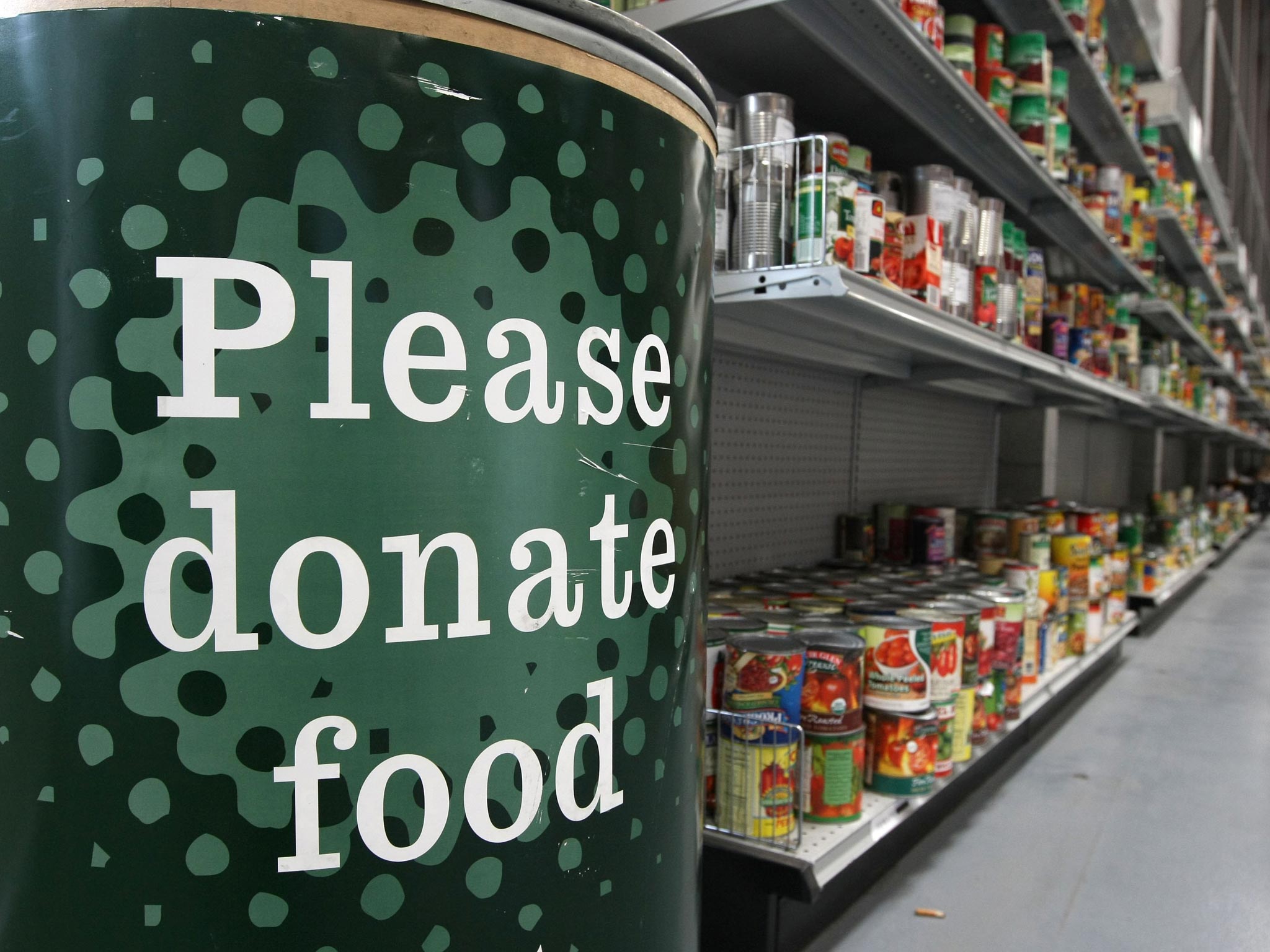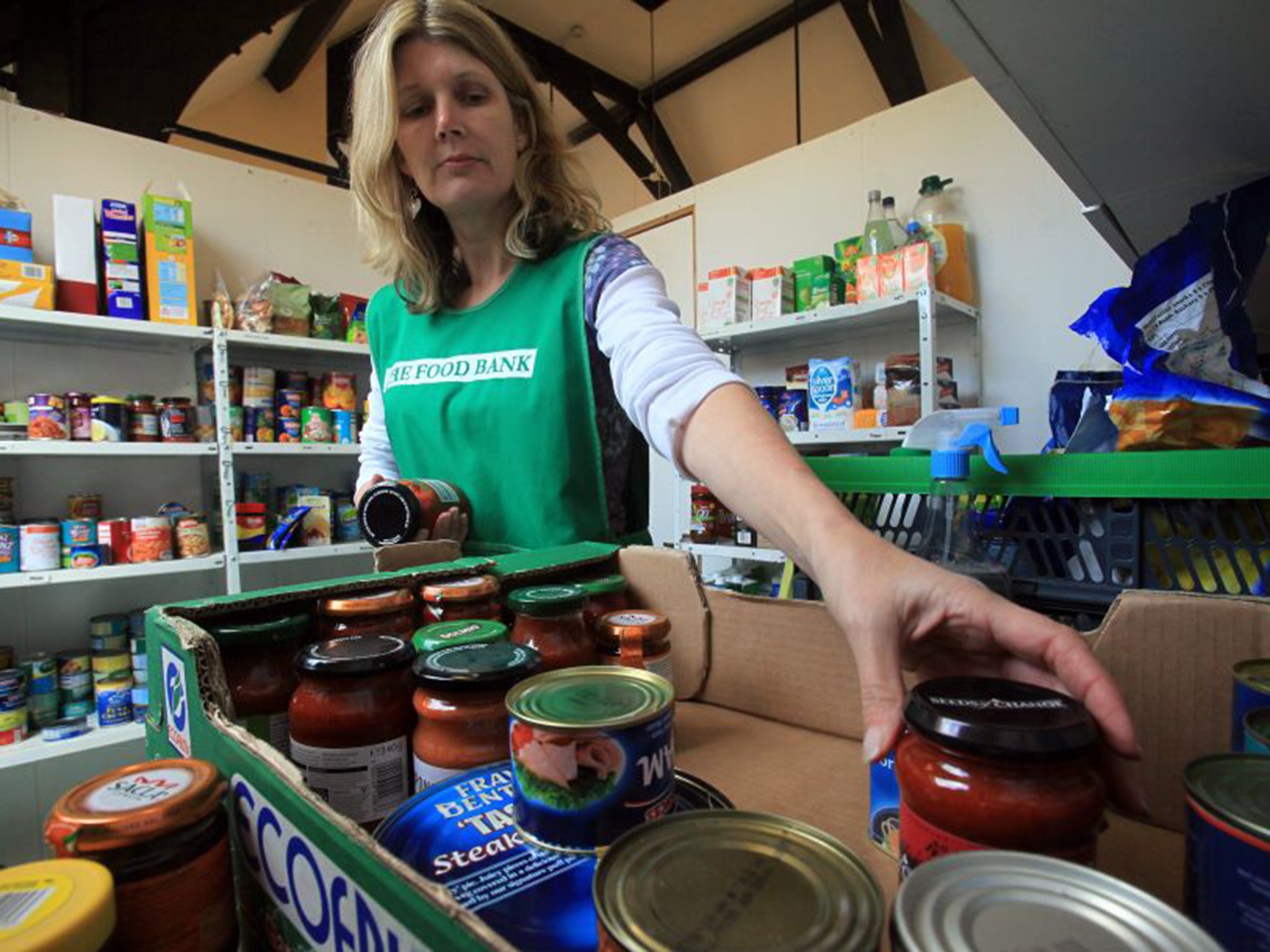Millions of Britons struggling to feed themselves and facing malnourishment
'Shocking' figures show that for the first time since the Second World War, the poor cannot afford sufficient calories

Your support helps us to tell the story
From reproductive rights to climate change to Big Tech, The Independent is on the ground when the story is developing. Whether it's investigating the financials of Elon Musk's pro-Trump PAC or producing our latest documentary, 'The A Word', which shines a light on the American women fighting for reproductive rights, we know how important it is to parse out the facts from the messaging.
At such a critical moment in US history, we need reporters on the ground. Your donation allows us to keep sending journalists to speak to both sides of the story.
The Independent is trusted by Americans across the entire political spectrum. And unlike many other quality news outlets, we choose not to lock Americans out of our reporting and analysis with paywalls. We believe quality journalism should be available to everyone, paid for by those who can afford it.
Your support makes all the difference.Millions of the poorest people in Britain are struggling to get enough food to maintain their body weight, according to official figures published this month.
The Government's Family Food report reveals that the poorest 10 per cent of the population – some 6.4 million people – ate an average of 1,997 calories a day last year, compared with the average guideline figure of about 2,080 calories. This data covers all age groups.
One expert said the figures were a "powerful marker" that there is a problem with food poverty in Britain and it was clear there were "substantial numbers of people who are going hungry and eating a pretty miserable diet".
The use of food banks in the UK has surged in recent years. The Trussell Trust, a charity which runs more than 400 food banks, said it had given three days worth of food, and support, to more than 492,600 people between April and September this year, up 38 per cent on the same period in 2013.
Based on an annual survey of 6,000 UK households, the Family Food report said the population as a whole was consuming 5 per cent more calories than required. Tables of figures attached to the report reveal the average calorie consumption for the poorest 10 per cent, but the report itself did not highlight this.
Chris Goodall, an award-winning author who writes about energy, discovered the figures while investigating human use of food resources. "The data absolutely shocked me. What it shows is for the first time since the Second World War, if you are poor you cannot afford to eat sufficient calories," he said.
He also highlights a widening consumption gap between rich and poor. In 2001/2, there was little difference, with the richest 10th consuming a total of 2,420 calories daily, about 4 per cent more than the poorest. But in 2013, the richest group consumed 2,294 calories, about 15 per cent more than the poorest.
The report, published by the Department for Environment, Food & Rural Affairs, also found that the poorest people spent 22 per cent more on food in 2013 than in 2007 but received 6.7 per cent less.

Liz Dowler, a professor of food and social policy at Warwick University, said that although calorie intake is hard to measure and that there were problems with the way the Family Food data is collected, it was clear that "there are substantial numbers of people who are going hungry and eating a pretty miserable diet.
"The story of people struggling is now beginning to show up in national data sets and that's a pretty bad sign."
While the true numbers of people not getting enough to eat was hard to establish from the report, she added: "I think the numbers are quite a powerful marker of the problem. The size and nature of the problem needs more work."
Professor Dowler said people who were struggling to get enough calories would often turn to high-energy food, such as chips, that can have a low nutritional value. "You can stave off hunger by just having some relatively cheap calories but if you live like that day after day your health will suffer significantly," she said.
"At the extreme, [malnourishment] is a cliff edge, but mostly it's not. It's a slow, miserable grind of bodily impoverishment, where you're gradually depleting your body's stores and your strength is way below what it should be. Your skin is very pale, you are exhausted all the time, you feel very low, often extremely depressed and you find it difficult to work.
"Children who are malnourished cannot concentrate at school, have endless coughs and colds and they get sick all the time. It's a pretty negative existence."
Susan Jebb, a professor of diet and population health at Oxford University and a member of Public Health England's obesity programme board, said people tended to under-report their calorie intake and noted that it did not appear that people were "significantly losing weight".
However, she added: "There are sub-groups of the population who are in food poverty and who are struggling to have enough to eat."
Chris Mould, the chairman of the Trussell Trust, said people who used food banks were genuinely desperate. "We talk to people who have had nothing but toast to eat for a week – usually parents because they are trying their best to keep their children fed," he said.
"This issue has been so significant for so many years now without proper co-ordinated action to try and address the causes, with the people who are responsible [the Government] repeatedly diverting attention from the issues and denying the reality of what the Trussell Trust has been saying, and calling it scaremongering."

Niall Cooper, the director of Church Action on Poverty, said the situation was "deeply worrying". "People are desperate and those using food banks are only the tip of the iceberg," he said. "There are lots of people who are too ashamed and who don't want to approach a professional to get a referral to a food bank."
And Imran Hussain, the head of policy at the Child Poverty Action Group, said: "The cost of the basics in life – rent, food and heating – has far outstripped headline inflation, earnings and benefit levels.
"Rather than spending billions on tax cuts largely benefiting the rich, we should be choosing to protect our children from hardship through prioritising affordable housing, tackling low pay and protecting the purchasing power of benefits."
Even though the report contains figures about calories consumed in the home and while eating out, along with total calorie intake, a government spokesman said: "The Family Food Report is an estimate of calories consumed in the home, not total calorie intake. When estimated calorie consumption outside the home is included the majority still meet their recommended daily intake.
"We know that some households are seeing the amount they spend on food increase, which is why the Government provides a number of schemes to help the most vulnerable in society afford and have access to nutritious food, such as the Healthy Start scheme and the Change for Life healthy-living campaign."
Maria Eagle, Labour's Shadow Environment Secretary, said it was a "national scandal that so many people are going hungry in the sixth-richest country on the planet, in the 21st century".
"The Tories' attitude to the relentless rise in hunger in Britain speaks volumes for who they stand up for. They refuse to accept any responsibility for it, despite the fact that their policies are making it worse," she said. "Only by tackling the cost-of-living crisis can we begin to see the numbers of people at risk of going hungry decline.
"That is why the next Labour government will raise the minimum wage, ban exploitative zero-hour contracts and abolish the bedroom tax."
Join our commenting forum
Join thought-provoking conversations, follow other Independent readers and see their replies
Comments